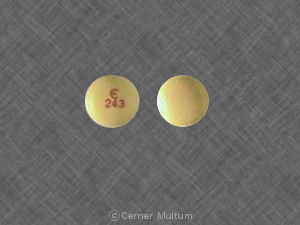 What is Rabeprazole?
What is Rabeprazole?
Rabeprazole is in a group of drugs called proton pump inhibitors. Rabeprazole decreases the amount of acid produced in the stomach.
Rabeprazole is used to treat symptoms of gastroesophageal reflux disease (GERD) and other conditions involving excessive stomach acid such as Zollinger-Ellison syndrome. Rabeprazole is also used to promote healing of erosive esophagitis (damage to your esophagus caused by stomach acid).
Rabeprazole may also be given with an antibiotic to prevent gastric ulcer caused by infection with helicobacter pylori (H. pylori).
Rabeprazole is not for immediate relief of heartburn symptoms.
Rabeprazole may also be used for other purposes not listed in this medication guide.
What is the most important information I should know about Rabeprazole?
Heartburn is often confused with the first symptoms of a heart attack. Seek emergency medical attention if you have chest pain or heavy feeling, pain spreading to the arm or shoulder, nausea, sweating, and a general ill feeling.
You should not use this medication if you are allergic to rabeprazole or to similar medicines such as lansoprazole (Prevacid), esomeprazole (Nexium), omeprazole (Prilosec, Zegerid), or pantoprazole (Protonix).
Rabeprazole is not for immediate relief of heartburn symptoms.
Some conditions are treated with a combination of rabeprazole and antibiotics. Use all medications as directed by your doctor. Read the medication guide or patient instructions provided with each medication. Do not change your doses or medication schedule without your doctor’s advice.
Take this medication for the full prescribed length of time. Your symptoms may improve before the infection is completely cleared.
What should I discuss with my healthcare provider before taking Rabeprazole?
Heartburn is often confused with the first symptoms of a heart attack. Seek emergency medical attention if you have chest pain or heavy feeling, pain spreading to the arm or shoulder, nausea, sweating, and a general ill feeling.
You should not use this medication if you are allergic to rabeprazole or to similar medicines such as lansoprazole (Prevacid), esomeprazole (Nexium), omeprazole (Prilosec, Zegerid), or pantoprazole (Protonix).
If you have severe liver disease, you may need a dose adjustment or special tests to safely take rabeprazole.
Some conditions are treated with a combination of rabeprazole and antibiotics. Use all medications as directed by your doctor. Read the medication guide or patient instructions provided with each medication. Do not change your doses or medication schedule without your doctor’s advice.
Taking a proton pump inhibitor such as rabeprazole may increase your risk of bone fracture in the hip, wrist, or spine. This effect has occurred mostly in people who have taken the medication long term or at high doses, and in those who are age 50 and older. It is not clear whether rabeprazole is the actual cause of an increased risk of fracture. Before you take this medication, tell your doctor if you have osteoporosis or osteopenia (low bone mineral density).
FDA pregnancy category B. This medication is not expected to be harmful to an unborn baby. Tell your doctor if you are pregnant or plan to become pregnant during treatment.
It is not known whether rabeprazole passes into breast milk or if it could harm a nursing baby. Do not use this medication without telling your doctor if you are breast-feeding a baby.
Rabeprazole Side Effects
What are the possible side effects of Rabeprazole?
Get emergency medical help if you have any of these signs of an allergic reaction: hives; difficulty breathing; swelling of your face, lips, tongue, or throat.
Less serious side effects may include:
- headache
- upset stomach or diarrhea
- insomnia or nervousness; or
- a rash or itching
This is not a complete list of side effects and others may occur. Call your doctor for medical advice about side effects. You may report side effects to FDA at 1-800-FDA-1088.
Rabeprazole Interactions
What other drugs affect Rabeprazole?
Tell your doctor about all other medicines you use, especially:
- atazanavir (Reyataz)
- a blood thinner such as warfarin (Coumadin)
- clopidogrel (Plavix)
- digoxin (digitalis, Lanoxin)
- ketoconazole (Extina, Ketozole, Nizoral, Xolegal); or
- cyclosporine (Gengraf, Sandimmune, Neoral)
This list is not complete and other drugs may interact with rabeprazole. Tell your doctor about all medications you use. This includes prescription, over-the-counter, vitamin, and herbal products. Do not start a new medication without telling your doctor.
What should I avoid while taking Rabeprazole?
Follow your doctor’s instructions about any restrictions on food, beverages, or activity.
Rabeprazole Dosage
How should I take Rabeprazole?
Take exactly as prescribed by your doctor. Do not take in larger or smaller amounts or for longer than recommended. Follow the directions on your prescription label.
Rabeprazole is usually given for 4 to 8 weeks only. Your doctor may recommend a second course of treatment if you need additional healing time.
When treating H. pylori infection, rabeprazole may be needed for only 7 days. Follow your doctor’s instructions.
Take this medicine with a full glass (8 ounces) of water.
Rabeprazole may be taken with or without food.
Do not crush, break, or chew a rabeprazole tablet. Swallow it whole. Breaking the pill may cause too much of the drug to be released at one time.
Take this medication for the full prescribed length of time. Your symptoms may improve before the infection is completely cleared.
Call your doctor if your symptoms do not improve or if they get worse while you are taking this medicine.
Store at room temperature away from moisture and heat.
What happens if I overdose on Rabeprazole?
Seek emergency medical attention or call the Poison Help line at 1-800-222-1222.
What happens if I miss a dose of Rabeprazole?
Take the missed dose as soon as you remember. Skip the missed dose if it is almost time for your next scheduled dose. Do not take extra medicine to make up the missed dose.
Sourced from everydayhealth.com
